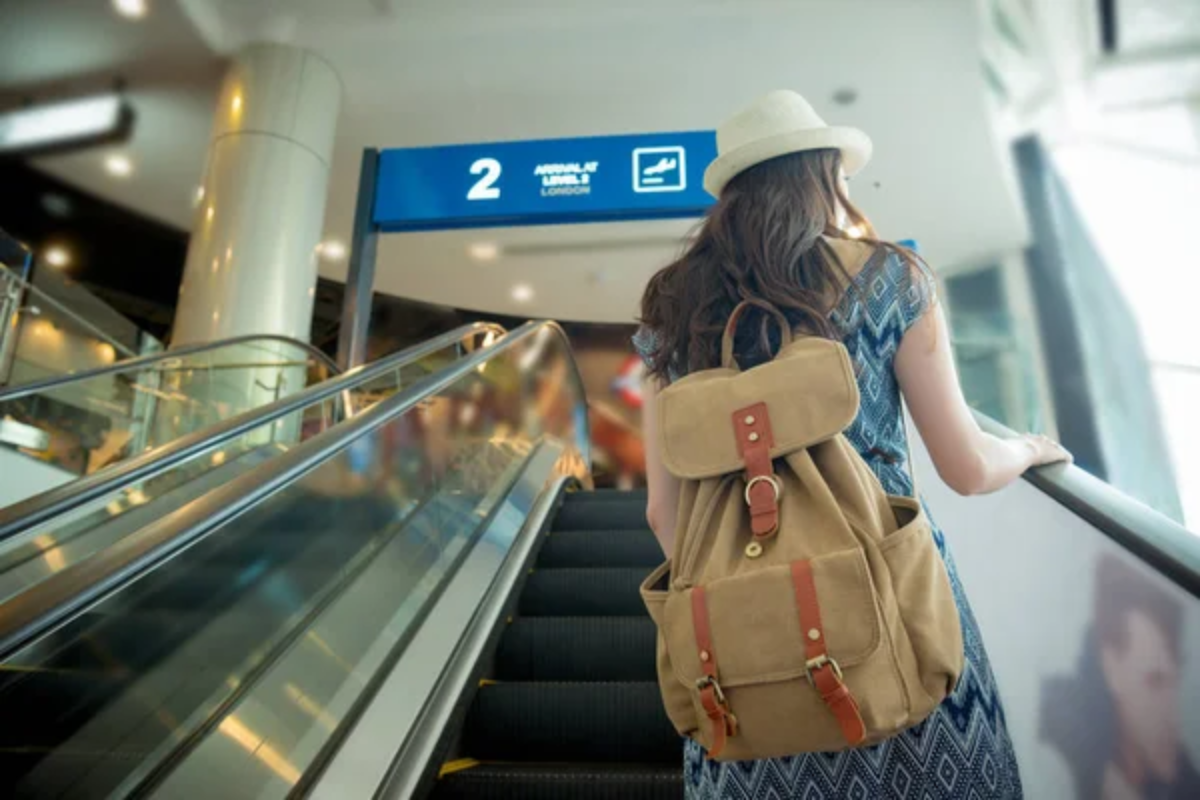Cultural missteps can transform friendly interactions into awkward misunderstandings faster than you can apologize. What seems perfectly normal in your home country might be deeply offensive elsewhere, and ignorance isn’t always an acceptable excuse when you’ve inadvertently insulted someone’s traditions or beliefs.
Understanding basic cultural etiquette opens doors to authentic experiences and genuine connections with locals who appreciate your effort to respect their customs. Here’s a list of 20 essential etiquette guidelines that’ll help you navigate international destinations with confidence and cultural sensitivity.
Research Religious Customs Before Visiting

Religious sites often have strict dress codes, photography restrictions, and behavioral expectations that vary dramatically between faiths and countries. Covering shoulders and knees is standard in most religious buildings, but some require head coverings or shoe removal.
Research specific requirements for major sites on your itinerary to avoid being turned away at entrances.
Learn Basic Greetings in Local Languages

A simple ‘hello,’ ‘please,’ and ‘thank you’ in the local language can show respect and often transform interactions with locals. Most people appreciate the effort, even if your pronunciation isn’t perfect.
Download language apps or write phonetic spellings on your phone for easy reference during conversations.
Like Travel Pug’s content? Follow us on MSN.
Understand Tipping Expectations

Tipping customs vary wildly between countries—what’s considered generous in one place might be insulting in another. Japan traditionally doesn’t accept tips, and servers may even return ‘forgotten’ money, while American-style 20% tips are expected in tourist areas of some countries.
Research local customs to avoid awkward situations and ensure fair compensation.
Respect Personal Space Boundaries

Comfortable conversation distances differ significantly between cultures, and what feels normal or polite to you might make locals uncomfortable. Nordic countries prefer more personal space, while Mediterranean cultures often stand closer during conversations.
Watch how locals interact with each other and adjust your positioning accordingly.
Master Appropriate Dining Etiquette

Table manners that seem universal often aren’t—eating with your left hand is considered unclean in many Middle Eastern and South Asian cultures. At the same time, slurping noodles is expected in Japan but is considered rude elsewhere.
Learn basic dining customs for your destination, especially if you’ll be eating with local families or business associates.
Like Travel Pug’s content? Follow us on MSN.
Dress Appropriately for Local Standards

Conservative dress expectations extend beyond religious sites in many countries, particularly for women traveling in traditional societies. What’s considered modest varies dramatically—sleeveless tops might be fine in European cities but inappropriate in rural Asian villages.
Pack modest clothing that covers shoulders and knees for conservative destinations.
Understand Gift-Giving Protocols

Bringing gifts shows thoughtfulness, but choosing the wrong items can cause offense or embarrassment. Alcohol gifts are inappropriate in Muslim countries, while even numbers of flowers are associated with funerals in some European cultures.
Research appropriate gifts and presentation customs if you’ll be visiting local homes.
Learn Proper Business Card Etiquette

Business card exchanges follow specific rituals in many Asian cultures, where cards are presented and received with both hands and studied respectfully rather than quickly pocketed. In Japan, treating a business card carelessly is equivalent to disrespecting the person who gave it to you. Always carry cards in a protective case.
Like Travel Pug’s content? Follow us on MSN.
Respect Photography Restrictions

Taking photos of people without permission can be deeply offensive, especially in traditional communities where photography might be viewed as capturing souls or violating privacy. Many countries restrict photography in areas near government buildings, military installations, or border zones.
Always ask permission before photographing individuals and respect any refusals.
Understand Gesture Meanings

Hand gestures that seem innocent can be highly offensive in different cultures—the thumbs-up sign is considered rude in parts of the Middle East, while pointing with your index finger is impolite in many Asian countries.
Learn about potentially offensive gestures in your destination to avoid unintentional insults during conversations.
Follow Local Queue Customs

Standing in line might seem universal, but queue etiquette varies between cultures. Some countries have very orderly queuing systems, while others operate more on a system of assertiveness and persistence.
Observe how locals handle waiting situations and adapt your approach to match local expectations rather than imposing your cultural norms.
Like Travel Pug’s content? Follow us on MSN.
Respect the Elderly and Authority Figures

Age and position command different levels of respect across cultures, and failing to show appropriate deference can be seen as extremely rude. In many Asian cultures, elderly people are served first and spoken to with special honorific language.
Learn how to show proper respect to older individuals and people in positions of authority.
Understand Bargaining Expectations

Haggling is expected in many markets and can be insulting to refuse, while in other places, attempting to negotiate prices is considered rude and inappropriate. Tourist markets in developing countries often expect bargaining, but trying to negotiate in Japanese stores can be mortifying for everyone involved—research local shopping customs before making purchases.
Learn Appropriate Footwear Etiquette

Shoes carry different cultural significance worldwide—removing them before entering homes is mandatory in many Asian cultures, whereas wearing them indoors is often expected elsewhere. Some religious sites require specific footwear, while others permit none at all.
Pay attention to what locals do and follow their lead regarding shoe removal.
Like Travel Pug’s content? Follow us on MSN.
Master Conversation Topics

Safe conversation topics vary dramatically between cultures, and subjects that seem harmless can be deeply personal or politically sensitive. Asking about family might be welcome in some cultures but intrusive in others, while political discussions could range from friendly debate to dangerous territory.
Stick to neutral topics, such as travel experiences and local recommendations, initially.
Understand Punctuality Expectations

Time concepts differ significantly between cultures—arriving exactly on time might be considered rude in some Latin American countries, where fashionably late is expected, while being even five minutes late in Germany shows serious disrespect.
Research local attitudes toward punctuality and adjust your arrival times accordingly.
Respect Local Dress Codes

Beyond modesty requirements, many cultures have specific dress expectations for different occasions and locations. Wearing shorts to upscale restaurants might be unacceptable, while overdressing for casual settings could make you stand out uncomfortably.
Observe local fashion norms and pack accordingly for various situations.
Like Travel Pug’s content? Follow us on MSN.
Learn Proper Public Behavior

Acceptable public behavior varies widely—public displays of affection might be normal in Western countries but illegal in conservative nations. Loud conversations that seem normal in some cultures can be considered extremely rude in others.
Observe how locals behave in public spaces and adjust your volume and behavior accordingly.
Understand Money Handling Customs

Cash transactions follow different etiquette rules worldwide—using your left hand to handle money is inappropriate in many cultures, while the way you present and receive money can show respect or disrespect. In some countries, placing money directly in someone’s hand is preferred, while others use small trays for transactions.
Respect Local Holidays and Traditions

Traveling during local holidays can provide incredible cultural experiences, but it also requires extra sensitivity to local customs and traditions. Some celebrations have restrictions on alcohol, noise limitations, or specific behavioral expectations.
Research local holidays during your visit and understand how they might affect your activities and interactions.
Like Travel Pug’s content? Follow us on MSN.
From Tourist to Cultural Ambassador

International travel has evolved from a privilege of the wealthy elite to a common experience that brings people from diverse cultures into daily contact. Modern travelers carry the responsibility of representing their home countries while learning from the places they visit, creating bridges between cultures through respectful interaction.
The most successful international travelers understand that adapting to local customs isn’t about losing their own identity—it’s about showing respect for the diversity that makes travel enriching and meaningful. Small efforts to understand and follow local etiquette can transform you from just another tourist into a welcomed guest who contributes positively to cross-cultural understanding.
More from Travel Pug

- 20 Best Beach Towns in the Carolinas
- 13 Destinations Where Tourists Regularly Regret Their Trip
- 20 Destinations That Are More Magical Without an Itinerary
- 20 Underrated Adventures That Belong on Your Travel List
- 20 Cities Where You Should Just Wing It, No Planning Required
Like Travel Pug’s content? Follow us on MSN.w us on MSN.N.
